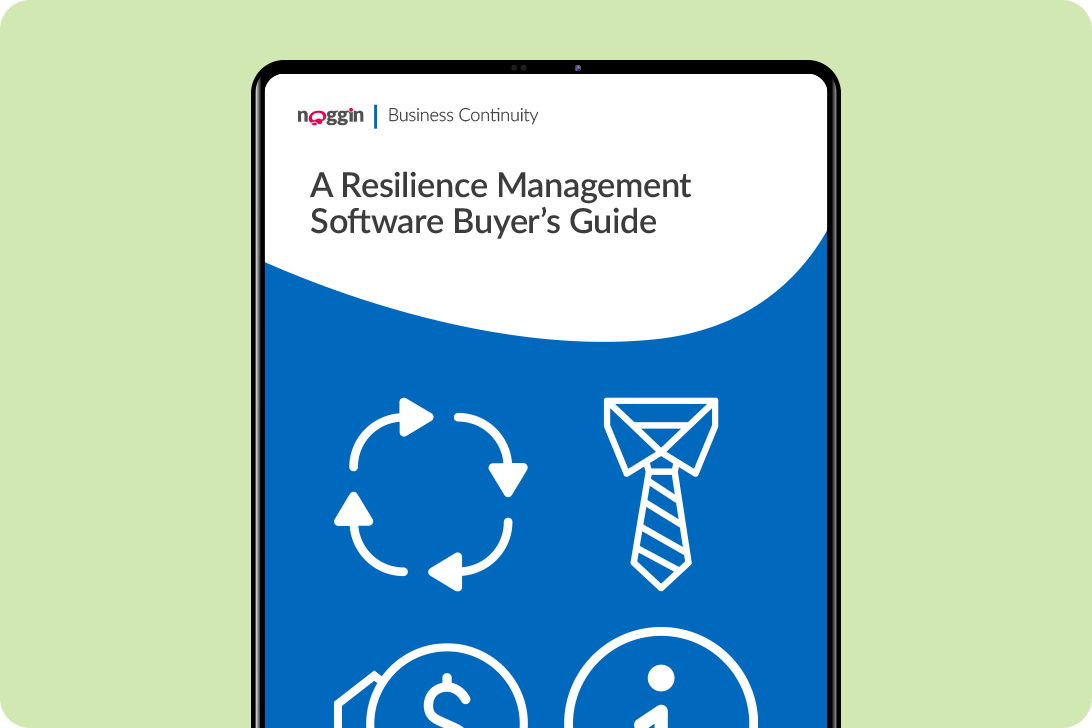Request a Demo
Fill in the form below and we will contact you shortly to organised your personalised demonstration of the Noggin platform.
Meet Noggin
An integrated resilience workspace that seamlessly integrates 10 core solutions into one, easy-to-use software platform.
The Noggin Platform
The world's leading integrated resilience workspace for risk and business continuity management, operational resilience, incident & crisis management, and security & safety operations.
Industries
Explore Noggin's integrated resilience software, purpose-built for any industry.
What is Operational Resilience: An Introductory Guide
Best Practice Guide
Making the case for consolidated resilience management software to address operational resilience gaps
After an unbroken series of crises, resilience has become a mantra of the business world. The BCI Operational Resilience Report 2022i , for instance, found that operational resilience practices have risen in popularity – quickly.
Now, over three quarters of organizations report either having or developing an operational resilience program. Within tightly regulated sectors (such as finance), adoption numbers are even higher.
Organizations aren’t just being swayed by regulatory mandates. The desire to implement best practices is also driving adoption. Nearly three quarters of respondents reveal that they are developing their operational resilience programs because of good practices.
The battle for operational resilience is hardly won, though. Despite their rise in popularity, operational resilience programs themselves are struggling. Why? Too often, it’s because practitioners don’t know what those programs should do.
What’s going on? According to the survey data, many operational resilience programs over time come to resemble organizational resilience programs, following the ISO 22316 standard as a best-practice prototype. Organizations also admit to confusing operational resilience with “business continuity done well”.
In small organizations, particularly, BC professionals are being tasked to oversee operational resilience. The result: widespread concerns that staff doesn’t have the requisite knowledge and resources to lead the transition to a more strategic and customer-centric operational resilience approach.
That’s not all. Concerns have also cropped up that practices implemented might even be harmful to operational resilience: for instance, using the business impact analysis exercise to define impact tolerances. Which might be dangerous given the different focuses between operational resilience and business continuity.
Download the full guide to continue reading >>



